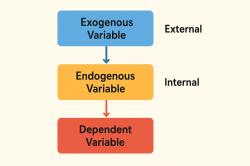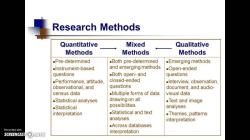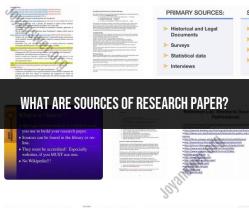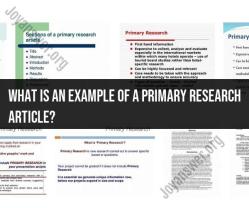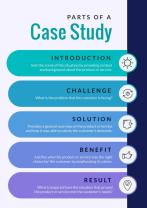What are the characteristics of empirical research?
Empirical research is a type of research that relies on evidence derived from observation, experience, or experimentation. The key characteristics of empirical research include:
Observation and Measurement:
- Empirical research is based on the direct observation or measurement of phenomena. Researchers gather data through sensory experience or using instruments to measure variables.
Systematic and Structured:
- Empirical studies are conducted in a systematic and structured manner. Researchers follow a well-defined research design and methodology to ensure the reliability and validity of their findings.
Reproducibility:
- The results of empirical research should be reproducible. If another researcher follows the same procedures and conditions, they should be able to obtain similar results.
Objectivity:
- Empirical research aims for objectivity and neutrality. Researchers strive to minimize bias and personal opinions in the collection and interpretation of data.
Data Collection:
- Empirical research involves the collection of data, which can be quantitative or qualitative. Data can be collected through experiments, surveys, observations, interviews, or archival research.
Hypothesis Testing:
- Empirical research often involves the formulation and testing of hypotheses. Researchers make predictions based on theories or previous research, and they collect data to either support or refute these hypotheses.
Analysis of Data:
- Collected data are analyzed using statistical or qualitative methods, depending on the nature of the research. Statistical analysis helps quantify relationships and patterns, while qualitative analysis provides a deeper understanding of phenomena.
Generalization:
- Empirical research seeks to draw generalizable conclusions. While findings are often specific to the sample studied, researchers aim to generalize their results to a broader population or context.
Peer Review:
- Empirical research is subject to peer review. Other experts in the field evaluate the research design, methodology, and findings before a study is published in a scientific journal. This process helps ensure the quality and credibility of the research.
Theory Building:
- Empirical research contributes to theory building by testing existing theories or developing new ones based on observed patterns and relationships in the data.
Causality:
- Empirical research often aims to establish causal relationships between variables. Researchers use experimental designs or statistical techniques to explore cause-and-effect relationships.
Ethical Considerations:
- Researchers must adhere to ethical principles when conducting empirical research. This includes obtaining informed consent, protecting participant confidentiality, and minimizing any potential harm.
By adhering to these characteristics, empirical research provides a systematic and rigorous approach to understanding and explaining various phenomena in fields such as science, psychology, sociology, and more.
What defines empirical research in academic studies?
Empirical research is a type of research that involves the collection and analysis of data to answer a question or test a hypothesis. It is based on the observation of the real world and aims to provide evidence-based conclusions. Empirical research is often conducted in a variety of fields, including the natural sciences, social sciences, and humanities.
How is empirical research different from theoretical research?
Theoretical research is a type of research that involves the development of theories or explanations for phenomena. It is often based on deductive reasoning and aims to create a framework for understanding the world. Theoretical research is often conducted in a variety of fields, including the natural sciences, social sciences, and humanities.
The main difference between empirical research and theoretical research is that empirical research is based on data and observation, while theoretical research is based on logic and reasoning. Empirical research is often used to test and refine theories, while theoretical research is often used to generate new questions and hypotheses.
What are the key steps in conducting empirical research?
The key steps in conducting empirical research typically include:
Defining the research question or hypothesis: This is the first step in any research project. It is important to clearly define what you want to study and what you hope to learn from the research.
Reviewing the literature: This is the process of reviewing existing research on the topic of interest. This will help you to understand the current state of knowledge and to identify any gaps in the research.
Developing a research design: This is the plan for how you will collect and analyze data. There are many different types of research designs, such as experimental designs, quasi-experimental designs, and survey designs.
Collecting data: This is the process of gathering information that will be used to answer the research question. There are many different methods of data collection, such as surveys, interviews, observations, and experiments.
Analyzing data: This is the process of organizing and interpreting the data that has been collected. There are many different methods of data analysis, such as statistical analysis and qualitative analysis.
Drawing conclusions: This is the process of summarizing the findings of the research and drawing conclusions about the research question.
Disseminating the findings: This is the process of sharing the results of the research with others. This can be done through publication in academic journals, presentations at conferences, or presentations to community groups.
How is data collected and analyzed in empirical studies?
There are many different methods of data collection and analysis, and the specific methods used will vary depending on the research question and the type of research design. Some common methods of data collection include:
Surveys: Surveys are a type of data collection method that involves asking questions to a group of people. Surveys can be conducted in person, over the phone, or online.
Interviews: Interviews are a type of data collection method that involves talking to people in person or over the phone. Interviews can be structured or unstructured.
Observations: Observations are a type of data collection method that involves watching and recording behavior. Observations can be conducted in a natural setting or in a laboratory setting.
Experiments: Experiments are a type of research design that involves manipulating variables and observing the effects of those manipulations. Experiments are often used to test causal relationships.
Some common methods of data analysis include:
Statistical analysis: Statistical analysis is a type of data analysis that uses statistical techniques to summarize and interpret data. Statistical analysis can be used to identify patterns in data, to test hypotheses, and to make predictions.
Qualitative analysis: Qualitative analysis is a type of data analysis that involves interpreting data in a non-numerical way. Qualitative analysis can be used to identify themes in data, to understand the experiences of others, and to develop new theories.
What are the advantages and limitations of empirical research?
Empirical research has a number of advantages, including:
It is based on data and observation, which can provide strong evidence to support or refute theories.
It can be used to test causal relationships between variables.
It can be used to generalize findings to a larger population.
However, empirical research also has some limitations, including:
It can be time-consuming and expensive to conduct.
It can be difficult to find a representative sample of the population.
It can be difficult to measure certain variables accurately.
The results of empirical research may not always be generalizable to other populations or situations.
Overall, empirical research is a powerful tool for understanding the world around us. However, it is important to be aware of the limitations of empirical research when interpreting the results of studies.


